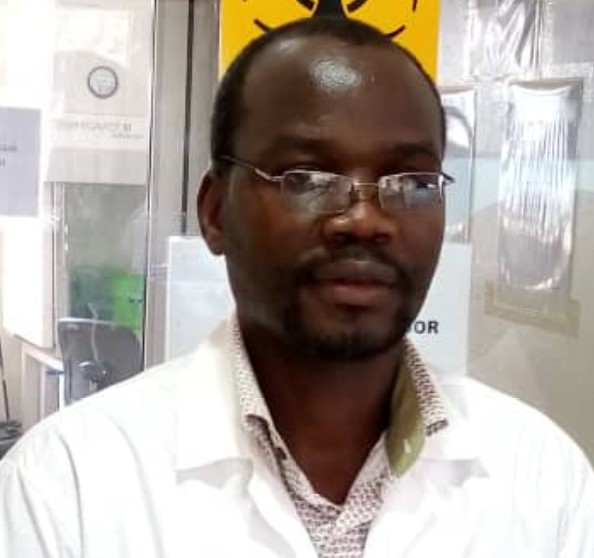Project Title
Selected concise host transcriptional signatures for the blood-based diagnosis of active tuberculosis in an HIV-prevalent setting (RNA-based diagnosis of TB)
EDCTP Project
TMA2020CDF-3209
EDCTP Project Call
Career Development Fellowship (CDF)
Project Objectives
Background
Tuberculosis (TB) is the leading cause of death due to infectious diseases, and the major cause of death among HIV-positive patients in Sub-Saharan Africa (1). Globally, an estimated 10 million people were sick with TB in 2018, with an estimated 1.5 million deaths (2). Africa accounted for 24% of the TB cases in 2018 with South Africa and Nigeria being the most affected (2).
Timely and correct diagnosis of TB is vital for control of the global TB epidemic. TB screening for passive case-finding rely on symptoms, and its limited by its suboptimal sensitivity (3), hence there is need for a rapid triage test that identifies symptomatic individuals prior to confirmatory diagnostic investigation. Such a test could reduce the burden on health systems and patients, and expedite referral, confirmatory testing, and treatment (4). Generally, suitable non-sputum tests are not available, and this is primarily because of a lack of biomarkers. A non-sputum-based triage test is required as many people with TB, including those co-infected with HIV and those with incipient early disease, can often not produce high quality sputum, which most current diagnostics (sputum-based smear microscopy, MGIT 960 liquid culture, and molecular detection by Xpert MTB/RIF (Xpert) or Xpert MTB/RIF Ultra (Ultra)) rely on.
In patients undergoing pulmonary and/or extrapulmonary TB assessments, a diagnostic test based on blood biomarkers would be optimal, as blood is easily obtainable (3). Immune responses to M. tuberculosis (MTB) lead to transcriptional patterns specific only for TB, and such biosignature patterns have since being used to accurately identify patients with active TB (3, 5). Several blood transcriptional diagnostic signatures have previously been described (5, 6), and these blood transcriptional classifiers detected active TB among racially diverse adults in the USA in a case-control validation study (3). These biomarkers hold the most promise in the near future for meeting W
Study Design
Overarching goal: To evaluate the diagnostic accuracy of selected concise host transcriptional signatures for the non-sputum-based diagnosis of active TB in symptomatic patients investigated in Africa and characterise patients who have elevated signature readouts but do not have active TB.
Aim 1: What is the diagnostic accuracy of the Sweeney3, Kaforou25, Roe3 and BATF2 signatures for active TB in a prospective real-world observational cohort of 2100 (South Africa=1260) and (Tanzania=840) symptomatic adults?
Sub-aim 1.1: To determine the sensitivity and specificity for each signature compared to sputum culture as a reference standard.
Sub-aim 1.2: To evaluate the optimal combination (overall sensitivity and specificity) of each signature when combined with other available TB diagnostic tests (MGIT 960 liquid culture, Xpert or Ultra), as well as novel SeroSelectTB blood test.
Significance and impact: The validation of the selected biosignatures could lead to the development of a prototype point-of-care RNA triage test that detects active TB or as an add-on confirmatory TB test. Developing an optimal algorithm will improve the cost-effectiveness of RNA-based triage tests. Also, improved TB diagnosis that could selectively identify active TB cases are pivotal for improving patient outcomes and reducing TB transmission.
Aim 2: To characterise patients classified as non-TB but who have elevated host transcriptional signature results.
Sub-aim 2.1: To determine if, at six-months follow-up, these patients have incident active TB.
Sub-aim 2.2: To evaluate if these patients are infected with other pathogens through targeted analysis of nasopharyngeal swabs.
Significance and impact: Host transcriptional signatures provide unique opportunities to target therapy among patients with greatest risk of incident active TB. Also, further characterisation of respiratory tract pathogens (viral and bacterial) in bacteriologically negative patients classified as non-TB has the potential
Project Summary
TB is a leading poverty-related disease, and the leading infectious causes of death among people living with HIV (PLHIV). Currently endorsed diagnostics rely on sputum, however, many TB people, particularly PLHIV cannot produce sputum. Interventions including non-sputum-based rapid triage test that identifies symptomatic individuals and promote access to confirmatory diagnostic investigation within a single clinical encounter is a global priority for TB control. Such a test could reduce the burden on health systems and improve diagnostic turnaround time.
RADIANT (NCT05542511) is a diagnostic evaluation study aimed at assessing the diagnostic accuracy of concise host transcriptional signatures to detect TB in symptomatic people visiting primary health facilities in Cape Town, and characterize people who have elevated host transcriptional signature readouts but do not have active TB. The project also seeks to support scientific and mentorship skills development, enhance capacity building in TB diagnostics and create a high-quality biological specimen- and transcriptional profiling data biobank to advance future TB diagnostic research.
RADIANT is a multi-cohort study which uses the framework provided by ongoing funded diagnostic clinical trials with similar eligibility criteria, in presumptive TB participants (≥18 years) who visits selected health facilities in Cape Town, South Africa to collect Tempus Blood RNA and nasopharyngeal swab specimen at baseline (n=1,458), and longitudinally, in a subset of people (n=193). Participant recruitment is completed. We are using a cost-efficient RNA profiling method for transcriptional signatures, and a next-generation sequencing -based respiratory pathogen panel for comprehensive pathogen detection in non-TBs.
RADIANT research team is, in addition to the PI (Dr Anna Okunola), comprised of Profs. Grant Theron (Stellenbosch University), and Mahdad Noursadeghi (University College London). A PhD student (Ms Welile Dube) is being trained in TB diagnostics thereby enhancing capacity building in Africa.
Ultimately, RADIANT aims to show that blood transcriptional signatures can be used as a triage test for TB or as an add-on confirmatory TB test, and characterisation of respiratory tract pathogens has the potential to direct appropriate therapy and infection control precautions.
In summary, the activities carried out for year 3 include renewal of HREC study approvals, completion of baseline and follow-up recruitment (including last subject and last visit), finalizing the biobanking of clinical specimens such as serum, plasma, nasopharyngeal swabs, and saliva swabs, and sputum (as part of the parent studies), participating in the EDCTP Forum, conducting project meetings with mentors, supervising and mentoring PhD students through progress update meetings, and performing monitoring site visits.

.jpeg)


